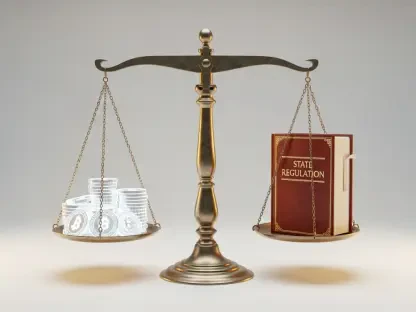The Department of Justice (DOJ) recently made the unforeseen decision to cancel grants amounting to over $810 million, which were previously allocated to various non-profit organizations and local government agencies. These funds were crucial in supporting anti-crime programs designed to bolster public safety through victim assistance, law enforcement training, and services for individuals facing behavioral health and substance abuse challenges. The abrupt termination of these programs, without any prior notification, has led to considerable disruption and financial difficulties for the involved parties. The DOJ defended this decision by suggesting that the funding did not align with the current administration’s priorities, specifically regarding law enforcement support and child protection. However, the validity of this argument has been questioned, as many of the canceled programs were perceived as directly contributing to these areas of concern and enjoyed strong bipartisan endorsement. The sudden cuts have sparked widespread concern about the potential adverse impact on community safety, as they halt efforts that were pivotal in reducing violent crime and promoting the rehabilitation of formerly incarcerated individuals.
Implications of Grant Termination
The decision to cut these grants has posed a significant threat to public safety by disrupting programs that played a fundamental role in reducing crime and fostering a sense of security within communities. These initiatives were not only instrumental in providing victims with the necessary support but also in equipping law enforcement personnel with essential training. Furthermore, they facilitated support services for individuals battling behavioral health and substance-related issues, thereby addressing root causes of criminal behavior. The sudden withdrawal of funding leaves many of these initiatives in a precarious position, severely undermining their ability to continue essential services. Local communities that relied on these programs now face uncertainty regarding how they will manage without the financial support they were depending on to sustain operations and fulfill their missions. The societal implications are profound, as the cessation of these programs could lead to an increase in crime rates and challenges in managing recidivism among previously incarcerated individuals.
The Perception of Partisanship and Wastefulness
Critics of the DOJ’s decision have raised concerns regarding the perceived partisanship and arbitrariness underlying the grant cancellations. By abruptly terminating funding for well-established programs, there is a sense that taxpayer money has been wasted, as significant investments have already been made in these initiatives. The decision undermines the credibility of the DOJ, which had previously committed to supporting these programs as part of a holistic approach to crime reduction and community safety. Although the DOJ made some attempts to reverse cuts concerning aid to crime victims, these efforts are viewed as insufficient in addressing the overall disruption caused by the broader grant cancellations. The reduction in support could set back progress in crime reduction and victim support by years, creating a need for alternative solutions to compensate for the loss.
Advocating for Reinstatement and Long-Term Solutions
There is a growing advocacy for the reinstatement of the grants and the establishment of long-term solutions to address the funding gap left by the DOJ’s decision. Many stakeholders are urging the DOJ to reconsider the grant terminations and seek strategies that align both with the administration’s priorities and community needs. They emphasize the importance of continued investment in programs that have proven effective in enhancing public safety and addressing core issues related to crime and rehabilitation. The call for action underscores the necessity for a balanced approach that reconciles administrative objectives with the vital support these programs provide to communities nationwide.









